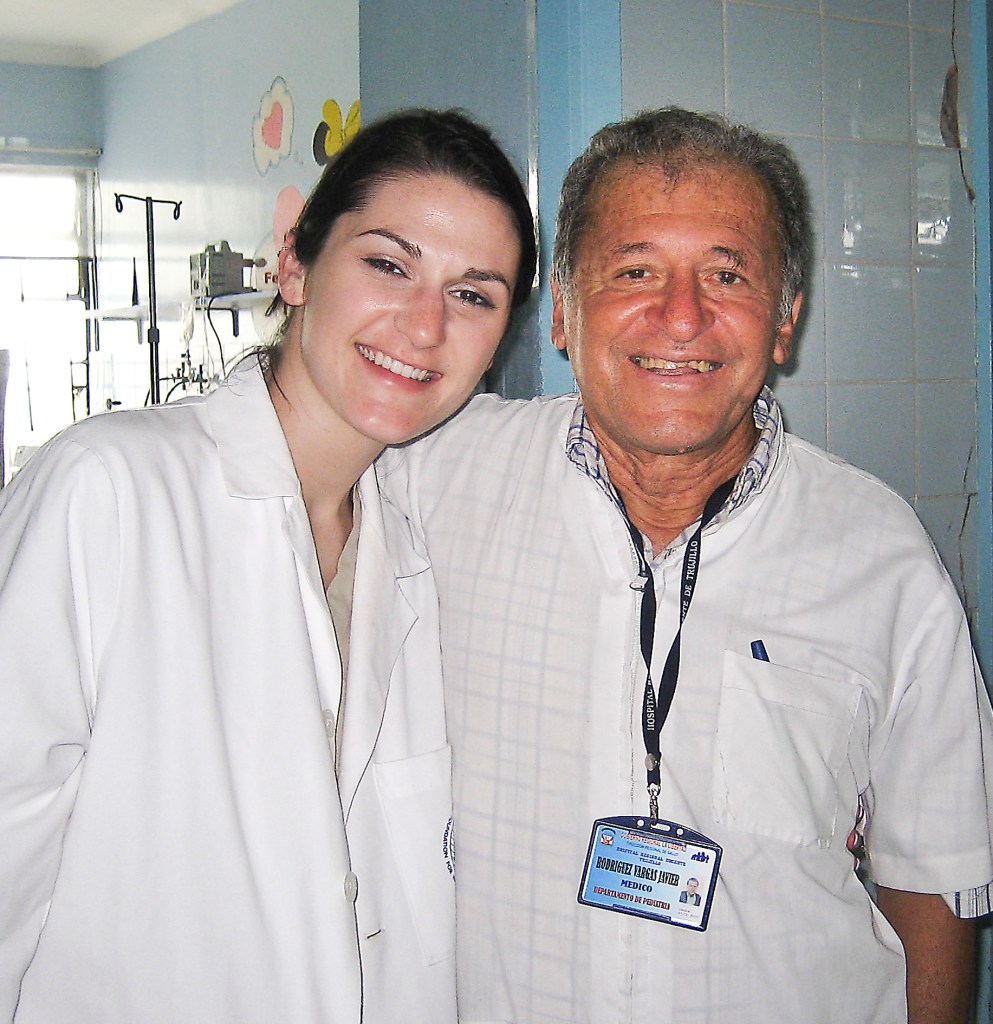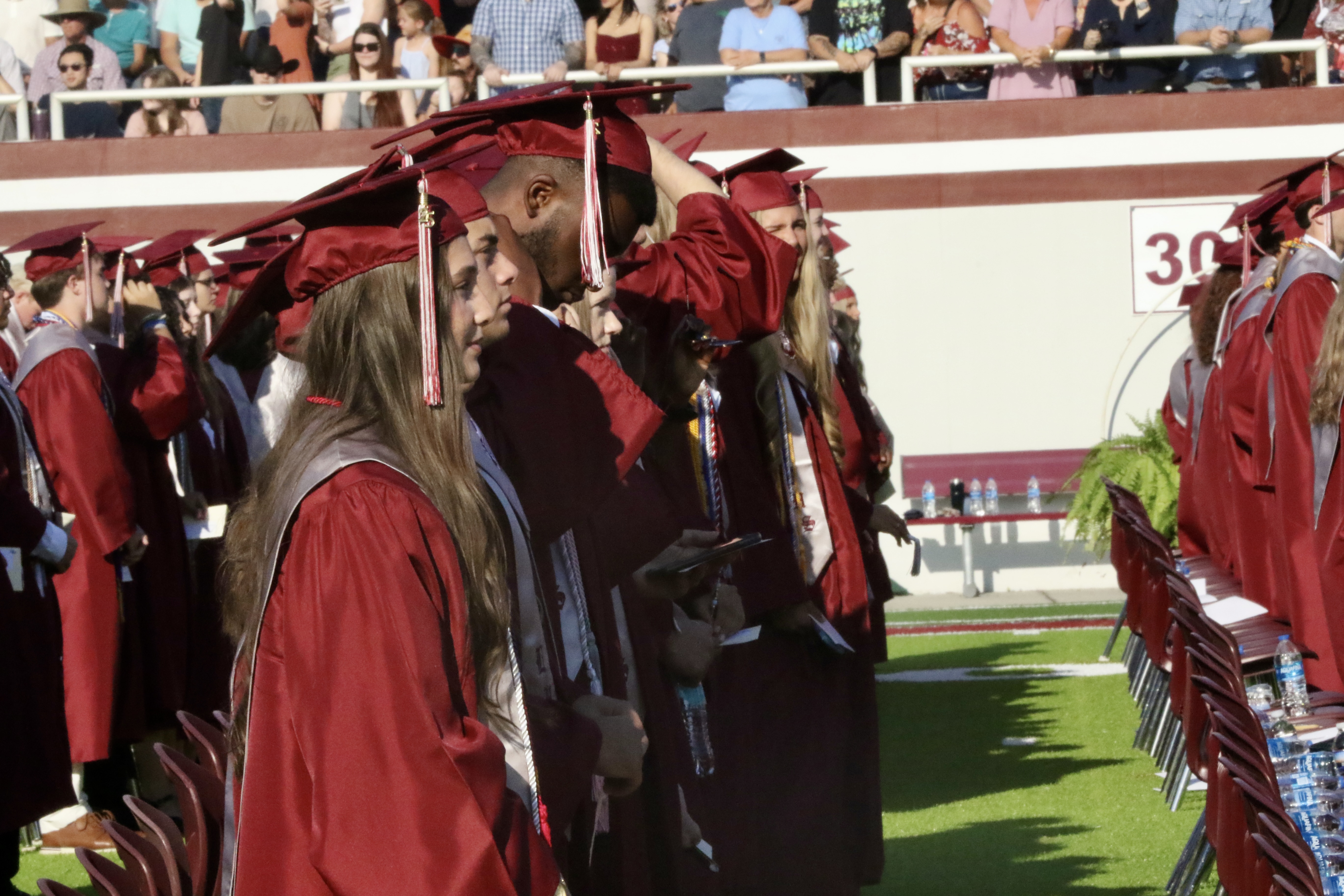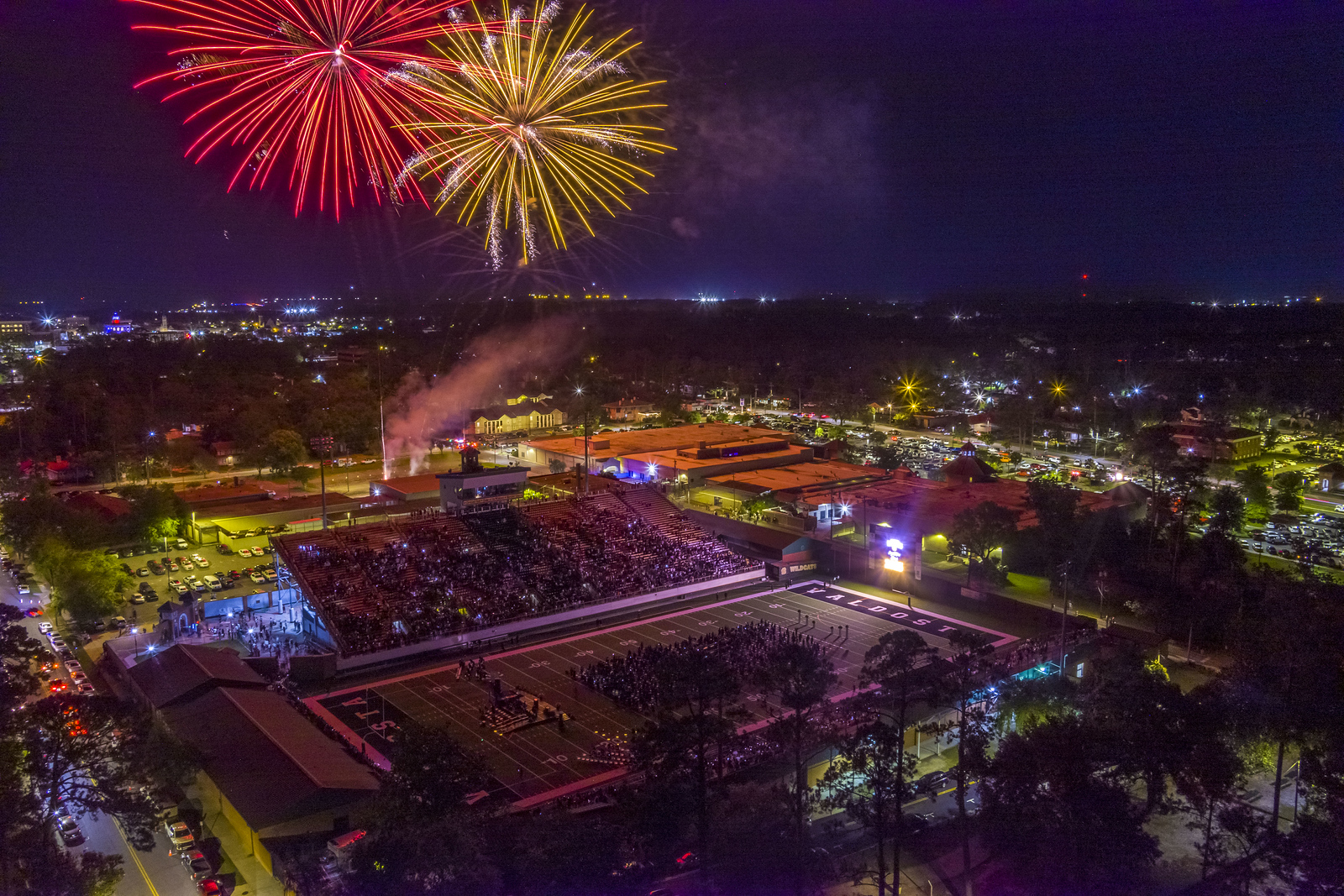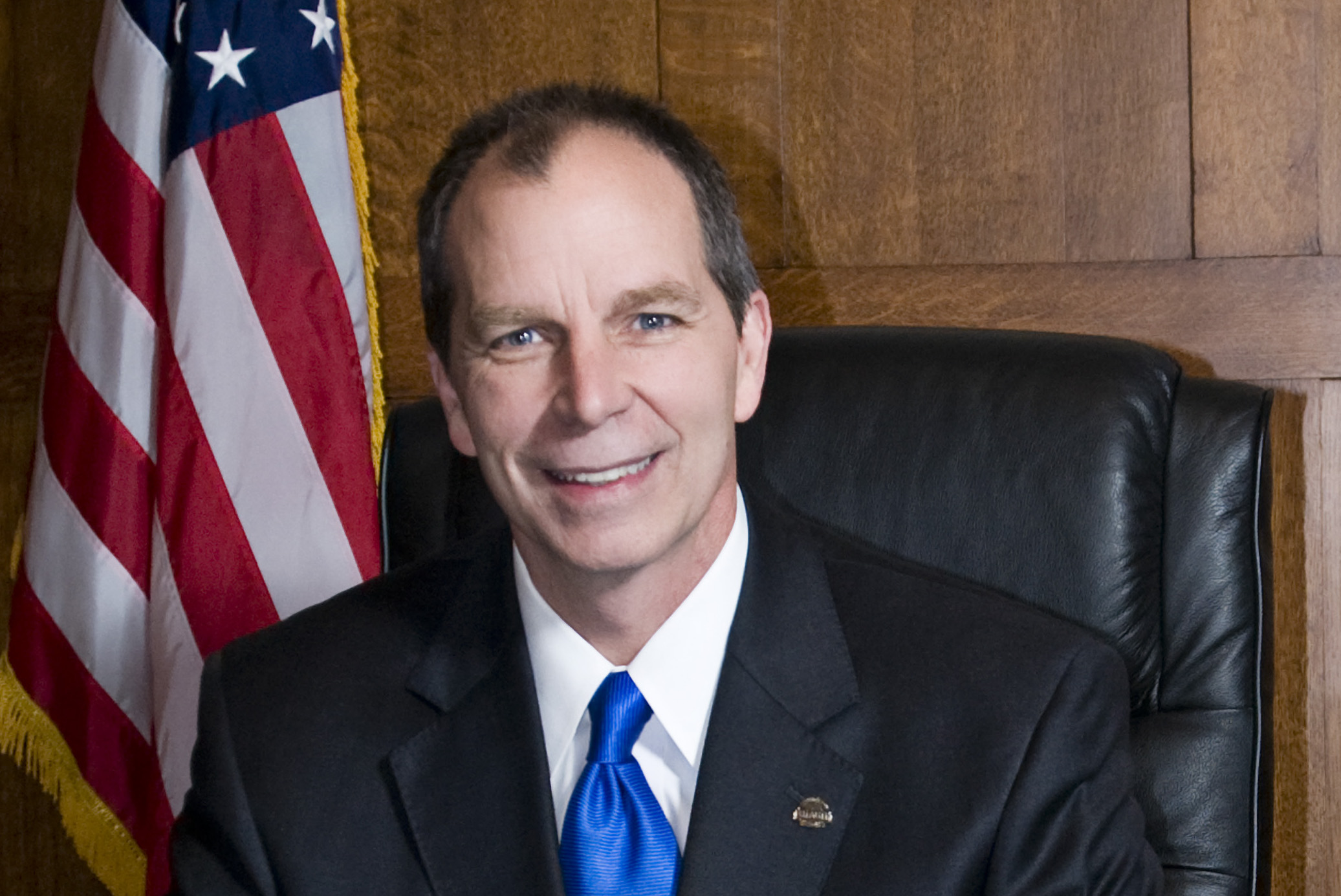Medical Mission: Helping the impoverished in Peru
Published 8:36 pm Tuesday, July 6, 2010

- Valdostan Karly Bishop, on a medical mission trip to Peru, worked with Dr. Javier Rodríguez Vargas, a neonatologist from Hospital Regional Docente De Trujillo.
The two little girls were twins from a city outside of Trujillo, Peru, known as New Jerusalem, “a slum settlement where people relocate from distant villages, like the mountain town of Agallpampa, in hopes of a better, more prosperous life for themselves and their children,” according to Valdostan Karly Bishop, who went on a week-long medical mission trip to Peru.
She described the area as “the farthest perimeter outside of Trujillo with no running water, sewage system, streets, electricity etc.
“The people come with very little and have very little. All of the children were very dirty, and it was the most heartbreaking thing I have ever witnessed (even after having visited Rwanda, Africa). Just before the picture (seen on this page) was taken, I had walked away from my group and the children because I just needed a moment to myself and didn’t want to cry in front of the children as they had no idea how badly their living conditions were, and I was not going to be the one to make them aware of such.
“But these two girls followed me out and when they saw I was crying (as much as I was fighting back the tears from falling), their expressions changed as they realized I was sad, and in that moment without any words, I was communicating my emotions with these two small girls who knew from the look in their eyes what my sadness felt like. They immediately stared and touched me, and I could tell they wanted to make me feel better so I put on a happy face as best as I could and shared my lotion with them.
They would repeatedly smell their hands as I rubbed the sweet-smelling scent in, and they would say ‘ahhh,’ relaying to me that they enjoyed it, and I knew it was a clean smell they weren’t used to. For a moment, these twin 6-year-olds took me away from my saddening thoughts and allowed me the joy of sharing in a moment of discovery with them.”
Karly, daughter of Dr. Craig and Jennifer Bishop of Valdosta, is a third-year medical student at the Georgia campus of Philadelphia College of Osteopathic Medicine in Suwanee (Gwinnett County). She plans to follow in the footsteps of her dad, a doctor of osteopathic medicine (DO).
Karly said DOs undergo the same curriculum as medical doctors, with the addition of osteopathic manipulative medicine techniques.
“Osteopathic medicine is holistic medicine,” she explained. “We focus on manipulations (loosening tight areas in the body, realigning) and helping the body to heal itself. A lot of times, people go to surgery for things that can be fixed (without it).”
Karly founded an international medical club for students interested in traveling and providing medical services. She organized students from her college to go on a medical mission earlier this year to teach manipulative medicine techniques to Peruvian medical personnel in two areas in northern Peru. In Agallpampa in the Andes Mountains, patients “walk for miles” to be seen in an outpatient setting.
“Women in labor or children who are really sick come to the clinics because the ambulances can’t come to the mountains,” Karly said. “They ride donkeys or walk to the clinics.
“In the mountains, they take good care of themselves. Their life expectancy is around 75 because the air is clean, and they have to walk everywhere. The kids who do get sick, it’s usually from intestinal parasites in the water. They had a vaccination clinic in the mountains (where) the moms were good to bring them to. The men do not come to the clinics because of a machismo attitude, and they are working — farming for survival; some do construction work.
“Doctors are very astute diagnosticians because they don’t have X-ray machines. The medicines they have are donated or what the state can give them.”
Valdosta Family Practice, where her father is a partner, and Valdosta pediatrician Dr. Allen Alvarado donated medicine for the Peruvians.
“The doctors we met (in Peru) and even the nurses were very interested in the osteopathic manipulations to heal their patients,” Karly said. “It was touching that the doctors already knew what osteopathic medicine meant, and we were very excited. People don’t appreciate what I go to school for or understand the training. It’s four years total plus 325 extra hours of classes in manipulation on top of all the basic sciences we have to learn like the medical doctors do.”
The medical students on the mission trip practiced manipulation on a Peruvian doctor, and then had him to do the manipulation, and he was critiqued.
“What amazes me and the reason I love going back is that the people regardless of their living conditions or health problems are so appreciative of not only our help, but life in general,” Karly said. “It’s something I tend to lose in the daily way of American life. They’re warm, compassionate, friendly people.”
The medical mission group of 10 stayed with two different families while they were in Peru instead of hotels.
“This is the first time in traveling that I stayed with a family instead of a hotel, and these people cooked for us and allowed us to sleep right next door to their own family members never having met us or knowing anything about us which was very trusting in my opinion.”
The trip to Peru wasn’t the first time the Valwood graduate had been abroad. As a present for graduating from Valdosta State University (with a bachelor of science in psychology), her parents gave her a trip to Africa, her lifelong dream, in the summer of 2005.
“I’ve always been infatuated with Africa,” she said.
“That solidified my resolve to become a doctor so I could help people.”
Her grandmother, Elizabeth Childs of Valdosta, who has taken her overseas on other trips, went on the African trip with Karly and her parents.
Karly’s other trips include a dental medical mission to Costa Rica in 2004 with a group from First United Methodist Church in Ozark, Ala., and a trip by herself to El Salvador with a medical organization called the Foundation of International Medical Relief of Children (FIMRC). She returned to FIMRC with the students she organized for the trip, but this time the destination was Peru.
From the mountains, the medical mission group traveled four hours to a very different setting in Trujillo, the third largest city in Peru, located at the banks of the Moche River, near its mouth on the Pacific Ocean. They worked in the university hospital, spending the first day in the ER trauma center. One of the patients was a man whose thigh had been pierced by a bull horn.
“We saw several gunshot wounds,” Karly said. “Car accidents are huge there. No one follows the rules.”
On the second day in the city, she worked in the neonatology ward.
“In the mountains women give birth by choice without medicine and do it standing, and they breast-feed for a year.”
Karly is considering practicing medicine “in another country for some part of my life” after she completes her last two years and her residency.
“When I go to these places, I feel rejuvenated,” Karly said. “It made me feel like the two very treacherous years of medical school were worth it. The first two years (which she completed in June) are the hardest.
“I wish everyone had a chance to travel outside the U.S., at least once particularly to an impoverished country.”





